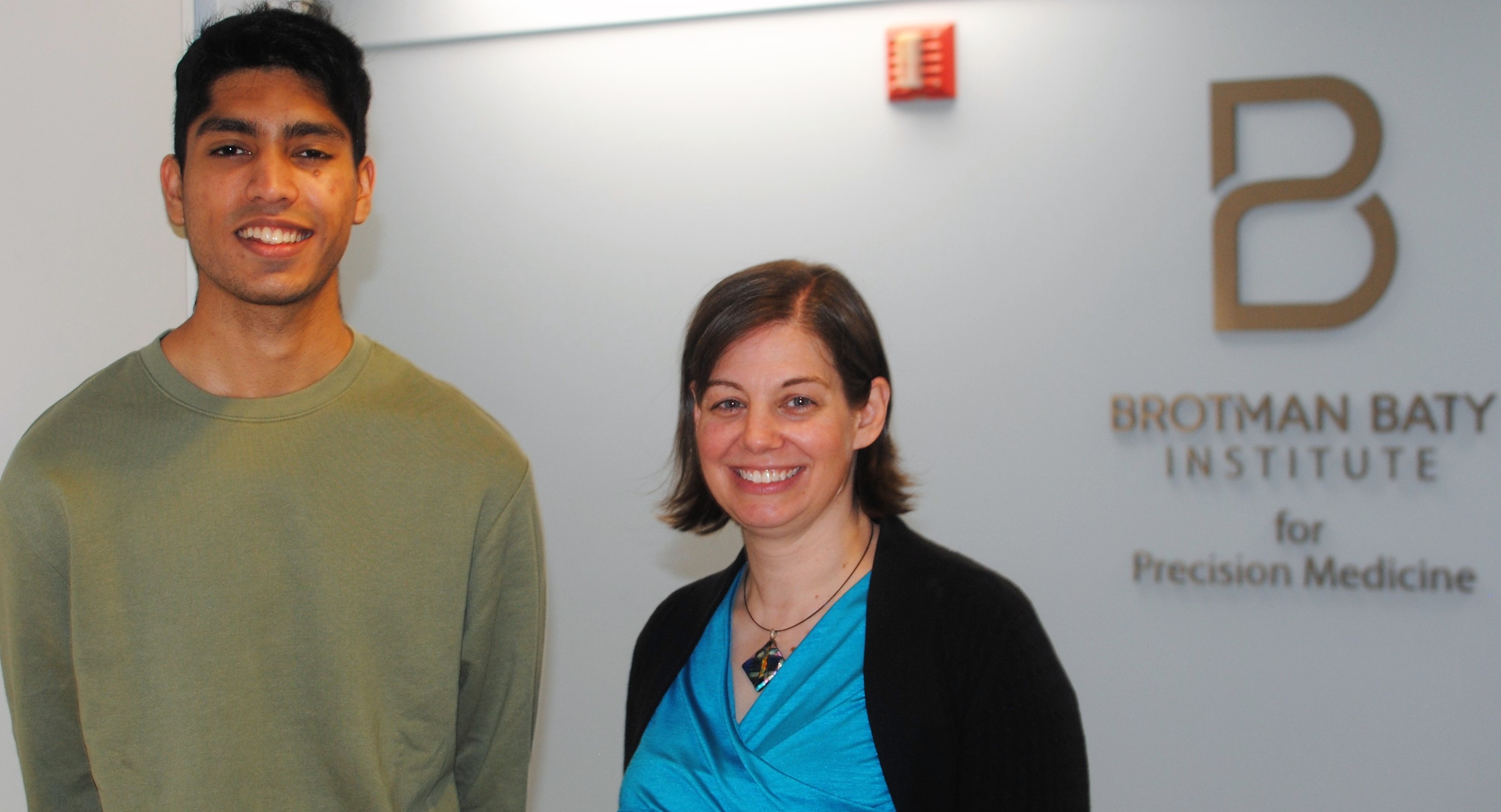 ‘He is quite perseverant, an important attribute for team-based science’
‘He is quite perseverant, an important attribute for team-based science’
It is 8,518 miles between Chennai, India and Baltimore, an exhaustive commute unless you are the U.S. Secretary of State. Or Mohamed Adil.
Adil, a 25-year-old Ph.D. candidate in the UW Medicine Department of Laboratory Medicine & Pathology, traveled between those cities over seven months in 2015 and 2016, volunteering in a lab at Johns Hopkins University Medical School. It was an extraordinary opportunity for an undergraduate inspired by a lecture from a visiting professor.
That professor, Dr. Samarjid Das, an assistant professor of pathology and anesthesiology and critical care medicine at Johns Hopkins, encountered Adil in Chennai and the two, Adil said, had an engaging conversation. “Finally, Dr. Das, just said to me, ‘You should come visit my laboratory,’” Adil said.
The next summer he was on a plane headed to Baltimore.
His work in a lab headed up by Dr. Marc Halushka, a professor of pathology at Johns Hopkins Medical School, was an immersive experience in observing and later conducting experiments involving microRNA, which plays important roles in regulating gene expression.
“Adil is legendary in my lab and life,” Halushka said. “Once he got the research bug, he ‘caught fire.’ He was staying with a colleague and started asking if they could leave for the lab earlier and earlier in the mornings, around 4 am, so he could get to the lab and get right to work. He would also take the bus in on weekends. Not only have none of my other trainees shown this level of dedication, I do not know of other trainees in our graduate school programs who have reached this level of perseverance”
After completing an undergraduate degree in biotechnology from Crescent Institute of Science and Technology in Chennai, Adil worked for four months as a research assistant in the Department of Ophthalmology at the University of Malaya in Kuala Lumpur, Malaysia. His role included collecting, processing, and storing blood samples from diabetic patients, as well as creating a database on REDCap, the web application for building and managing online surveys and databases.
Adil narrowed his academic focus to genomics and diagnostics and started applying to Ph.D. programs in the U.S. All his applications were rejected, largely he said, “because an undergraduate degree from a school in India did not put me on same level as an undergrad degree from schools in the United States or Europe. I needed Master’s.”
He explored opportunities at the UW; was accepted, and arrived in Seattle in September of 2019. One of this first tasks was to identify a potential mentor. Adil scheduled interviews with key faculty with whom he wanted to work and asked each of them – BBI’s Drs. Christina Lockwood, Colin Pritchard, Brian Shirts, and Stephen Salipante – the same question: “What are the most important skills for someone wanted to study genomics?”
All four, he said, gave the same answer: “knowledge of biology and excellent computational skills.”
“I was taken aback because I have no computer science background,” Adil said. “But, I thought, this is my opportunity to learn.”
He has had many opportunities to learn from BBI faculty and researchers over the past two and a half years, including serving as:
• A research assistant in the lab of Dr. Barry Lutz collaborating with others to develop a urine test strip that detects a drug metabolite to monitor Tuberculosis drug adherence.
• A research scientist in the Department of Laboratory Medicine & Pathology, working with Lockwood to investigate methods and techniques for detecting epigenetic signals from cell-free DNA that enable the identification of tissue of origin. His responsibilities included developing computer programs to perform complex analyses from raw sequence data.
• A graduate student in the Solid Tumor and Genetics Laboratory, applying knowledge of cell-free DNA to develop a clinical assay detecting tissue injury and tumor identification and classification from low invasive liquid biopsies.
Lockwood said such enthusiasm for learning is a primary motivation for Adil.
“He came from a traditional ‘wet lab’ background where he was doing typical lab experiments,” she said. “Adil started his Master’s knowing that he wanted to learn computational skills and, specifically, cell-free DNA. That’s fairly unusual in a student. It set him apart. He also is quite perseverant, an important attribute for team-based science.”
During his Master’s studies, Adil collaborated with BBI’s Drs. Jonathan Reichel and Gavin Ha, who are computational biologists, as well as with Pritchard and BBI’s Dr. Shreeram Akilesh, a specialist in kidney disease. He worked on improving a prenatal cell-free DNA screening assay.
Adil completed his Master’s in July of 2021 and two months later launched into doctorate studies in molecular medicine and the mechanism of disease. He hopes to finish his Ph.D. in fewer than five years.
“I want be in a position to continue doing research, solving one problem at a time in a way that my work doesn’t just end up in a paper, but actually has clinical applications and, like the work of many others at BBI, makes a difference in people’s lives.”


